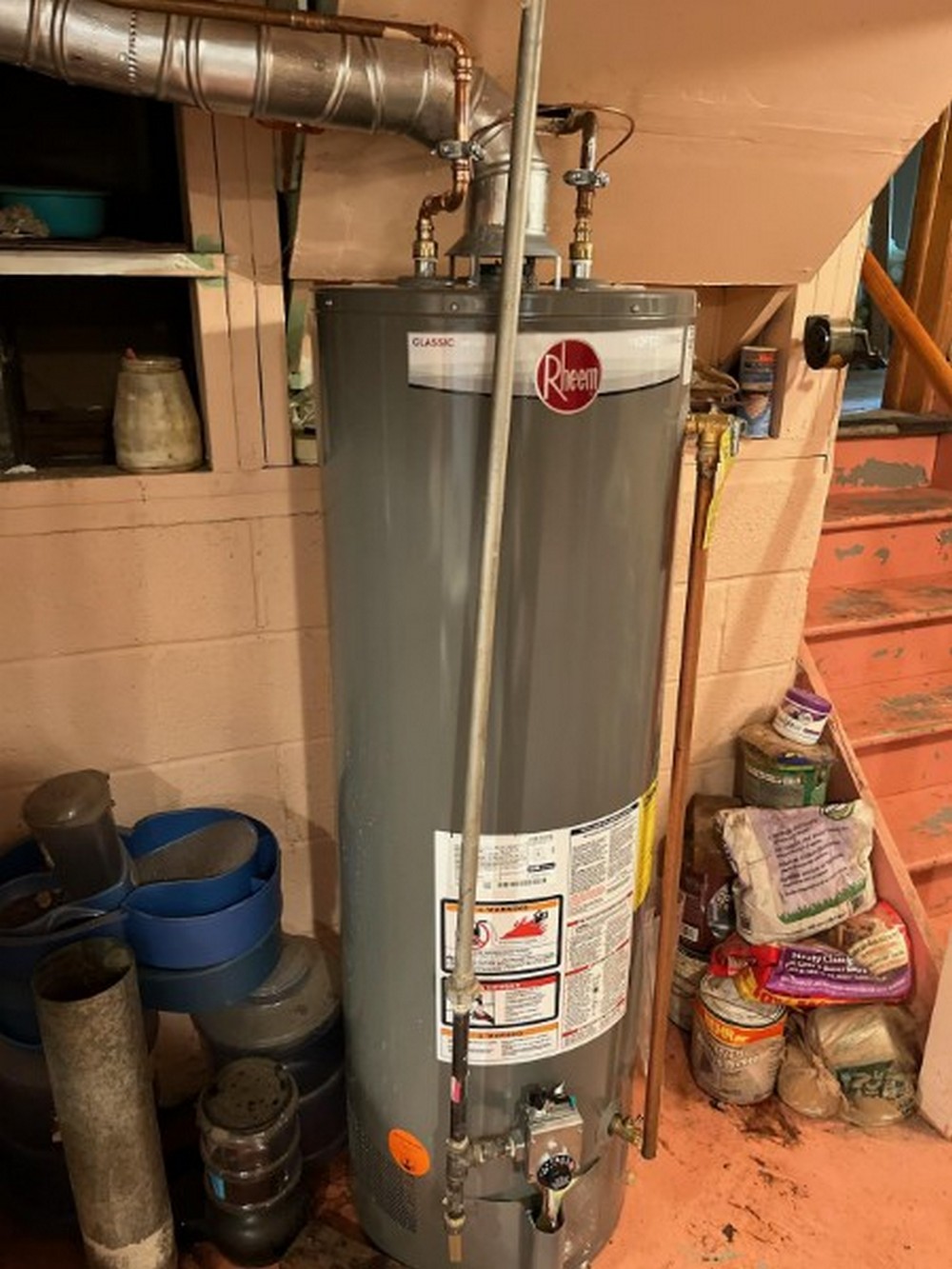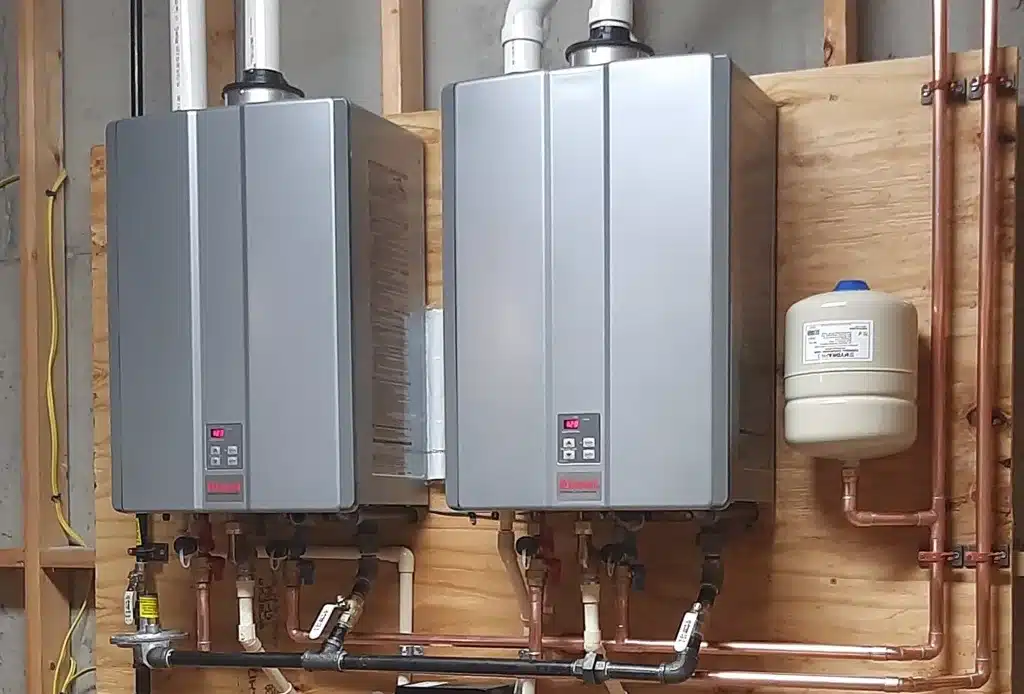Gas Leak Repair by Certified Technicians for Maximum Safety at Home
Gas Leak Repair by Certified Technicians for Maximum Safety at Home
Blog Article
Full Overview to Water HeaterInstallation and Substitute
Understanding the intricacies of water heater installment and substitute is essential for property owners looking for to make certain effectiveness and dependability in their warm water supply. From selecting the appropriate type and size to performing a seamless setup procedure, a number of aspects should be considered to avoid typical mistakes. This overview will certainly provide you with the necessary actions and insights to browse the intricacies of this home enhancement task, while likewise highlighting crucial upkeep practices that can extend the life of your system. As you discover these aspects, you may discover on your own reassessing your existing configuration and identifying areas for renovation.
Sorts Of Hot Water Heater
When thinking about hot water heater setup and substitute, it is vital to comprehend the various sorts of water heating systems offered in the market. One of the most usual kinds consist of tank hot water heater, tankless hot water heater, warmth pump water heating systems, and solar hot water heater.
Tank water heaters are traditional systems that save a details quantity of hot water, making them conveniently available when needed. In comparison, tankless water heating units give warm water on demand, getting rid of the demand for storage space.
Heatpump water heating units make use of power to transfer warm from the air or ground to warm water, offering substantial energy cost savings however requiring more room and details installation problems. Solar water heaters harness solar power to heat water, supplying an eco-friendly alternative with possible lasting cost savings, although they frequently need a backup system for over cast days.
Comprehending these options makes certain notified choices regarding installation and substitute, accommodating details demands and choices.
Picking the Right Size
Picking the proper dimension for a water heating system is critical to make certain ideal performance and performance. An unit that is also tiny will certainly battle to fulfill family needs, causing inconsistent warm water accessibility and enhanced power consumption. Alternatively, an oversized hot water heater can cause unnecessary power waste and greater energy expenses.
To determine the appropriate size, think about the house's top hot water usage. This can be calculated based on the number of owners and their regular warm water needs. For instance, a household of four might need a hot water heater with a capacity of 50 to 80 gallons, relying on the usage patterns, such as synchronised showers and laundry.
Additionally, assess the recuperation price, which measures how quickly a heater can restore warm water after it has actually been utilized. For tankless versions, focus on the circulation price, gauged in gallons per min (GPM), to ensure it fulfills the household's simultaneous demand.

Installation Refine Introduction

Following, the old system has to be separated and eliminated, making sure to comply with local codes and laws pertaining to disposal. As soon as the old system is out, the new water heater can be placed in position. This step includes linking the supply of water lines, guaranteeing that all fittings are leak-free and safe and secure.
After establishing water connections, it's important to connect the power supply, whether electrical or gas, following the producer's guidelines diligently. When all connections are made, the system must be loaded with water, and the power can be turned back on. It's important to inspect for leaks and make sure the water heating system is operating correctly prior to completing the setup procedure.
Usual Installation Blunders

An additional regular mistake is ignoring to comply with regional codes and guidelines. Failing to abide by these criteria can not only result in security dangers yet may additionally lead to pricey penalties or the requirement for costly reinstallation. In addition, inappropriate airing vent is an important issue. Insufficient ventilation can cause unsafe gas accumulation, posturing major health and wellness risks.
Failing to safeguard links or visit site making use of the incorrect kind of fittings can lead to leaks and water damages. By avoiding these usual installation mistakes, homeowners can guarantee their water heating unit operates safely and efficiently, making the most of efficiency and durability.
Maintenance Tips for Longevity
Correct upkeep of a water heating unit is essential for its durability and optimal performance. Regular inspections and servicing can protect against costly repair work and prolong the home appliance's lifespan. Begin by inspecting the temperature level setup; it needs to generally be set between 120 ° F and 140 ° F for ideal energy efficiency and safety and try this site security.
Every 6 months, purge the container to remove sediment build-up, which can hinder home heating efficiency and trigger rust. To do this, switch off the heater, attach a hose pipe to the drain shutoff, and allow the water run up until it is clear.
Anode rods should be checked every year and changed when they are rusted. These poles help prevent storage tank deterioration by attracting corrosive components in the water.
Additionally, inspect the stress alleviation valve regularly to guarantee it is operating appropriately. This shutoff is crucial for stopping extreme stress build-up within the container.
Finally, think about arranging a specialist maintenance check every couple of years for detailed evaluations and maintenance. By adhering to these maintenance ideas, property owners can dramatically enhance the effectiveness, safety and security, and life-span of their hot water heater, ensuring reputable warm water for many years ahead.
Final Thought
To conclude, appropriate installation and upkeep of water heating systems are essential for making certain effectiveness and longevity (plumber Denton). Picking the appropriate kind and size, adhering to setup guidelines, and avoiding usual errors dramatically add to ideal performance. Routine maintenance checks and professional maintenance help receive functionality and prevent costly fixings. By comprehending these essential aspects, homeowners can attain a reputable warm water supply while minimizing potential concerns associated with hot water heater procedure.
Understanding the intricacies of water heater installation and substitute is important browse this site for homeowners looking for to guarantee performance and reliability in their hot water supply.Container water heaters are typical systems that store a details quantity of hot water, making them readily available when required. In contrast, tankless water heating systems supply hot water on need, getting rid of the need for storage space. Picking a water heating system that is either as well tiny or too huge can lead to inadequacies, resulting in insufficient warm water supply or too much power usage.
By understanding these necessary facets, homeowners can attain a reliable hot water supply while reducing possible concerns related to water heating system operation. drain cleaning.
Report this page